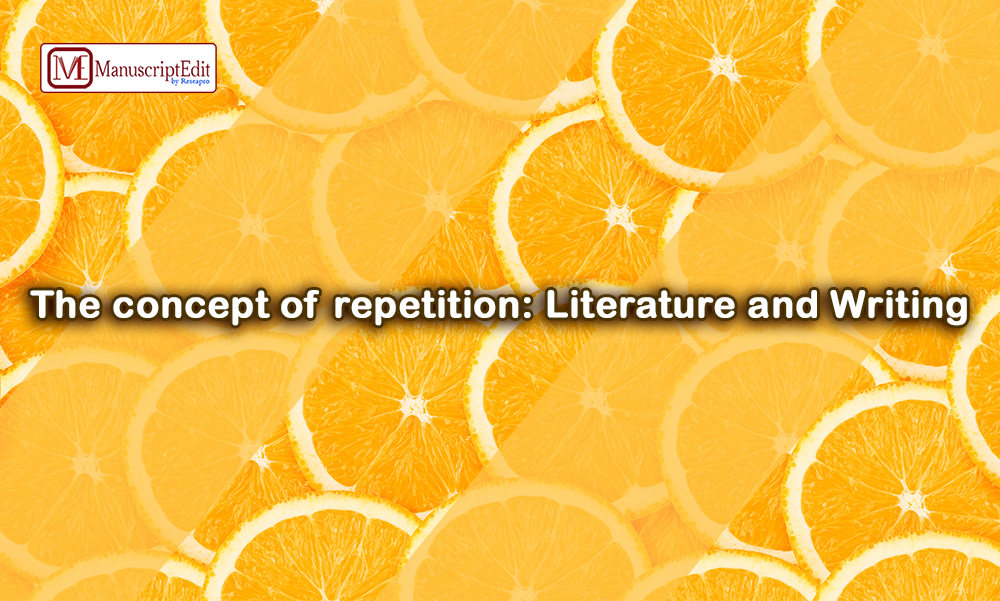Repetition refers to the use of the same word or phrase repeatedly throughout a text. Repeated sentences are popular in all types of writing, but especially in oration, where the listener’s attention is often limited. Such situations can make it more noticeable and attractive.

Repeating a word or phrase can have positive advantages, alongside the negative virtue of averting confusion. It can serve to emphasize ideas and drive a point home and link two separate ideas by signposting their similarity or contrast. And it can produce a number of rhetorical effects as well, such as humor, persuasiveness, or a sense of nostalgia. Many sentences derive their force from the skillful repetition of a keyword, such as “special” in the following example:
Example: The special effects are stunning, but they are the only thing special about the film.
Is repetition important, and why?
Finding patterns comes naturally to our brains. In math. In art. And in writing. These are the things we focus on and file away as important. The same applies to repetition in writing. Repetition is one of the most popular tools among orators as it can highlight a topic and improve the understanding of a speech. In addition to adding to the power of persuasion, repetition can also make people believe the truth of a phrase.
Repetition is also used by writers and speakers to give words rhythm. In the same way as rhyme, consonance, and assonance, repetition adds musicality to a piece of writing.
Overuse of Repetitions
There are times when repetition is not used intentionally in writing. The writer might have a restricted vocabulary or included clauses or phrases that simply repeated a word or idea with no addition to the overall message. It is important to avoid repetition in these cases since it will slow down your writing and make it hard for your reader to follow you.
For instance:
Pauline discovered why Pauline‘s mother named her Pauline when she discovered that her grandmother’s second name was Pauline.
In the above example, “Pauline” is used frequently. It is possible to avoid this excessive repetition by substituting pronouns or by replacing the name with a short phrase.
How to Use Repetitions Wisely
In careful writing, repetition is used to enhance the reader’s experience without boring their readers. It is also important for writers to reinforce their points by repeating strong words rather than replacing them with weak ones.
By reading it aloud, you can determine how well repetition is used in your writing. If you notice too many repetitions in your writing, use pronouns, synonyms, or even a new sentence to improve the flow before you share it with others.
If you find the content useful, please go to https://www.manuscriptedit.com for more information. Please mail us your queries and comments at support@manuscriptedit.com
Happy Reading!!!
[credit-priti]


